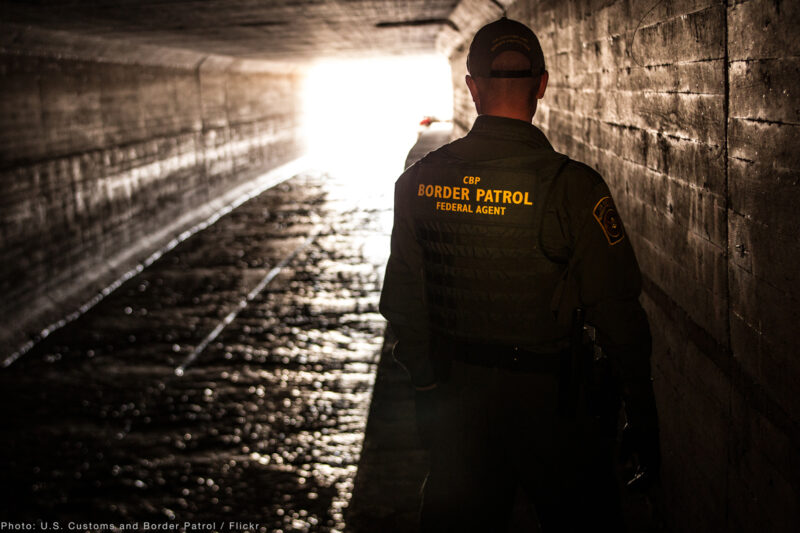
The case of Jose Antonio Elena Rodriguez starkly border communities of everything wrong with policing in America. He was 16 years old, unarmed, and walking peacefully to a convenience store when Border Patrol agent Lonnie Swartz shot him ten times through the back.
His death is one of more than 50 since January 2010 at the hands of U.S. Customs and Border Protection. In not one of those incidents has any Border Patrol agent been held accountable.
This week, as Congress whether to expand Trump’s deportation force as a tradeoff to rejecting his wall, they would do well to remember that justice has yet to be served for dozens of families like Jose Antonio’s. The roughly 15 million residents who live, play, and work in Southwest border communities acutely experience the consequences of congressionally approved hiring surges that wash their hands of any responsibility for adequately vetting or holding agents accountable. We refuse to be treated as a political pawn again.
Border Patrol’s culture of military-style, discriminatory policing and resistance to basic 21st century police reforms presents the greatest threat to our safety and freedom. Border Patrol spent the better part of two decades from public scrutiny, but border communities, the ACLU, and a Homeland Security Advisory Panel subcommittee of peer law enforcement experts recently CBP’s legacy of corruption and widespread abuse.
Their accountability deficits resulted in alarming of ; of unaccompanied children; denial of basic needs in overcrowded, freezing custody cells; of migrants’ personal belongings; stop and frisks at interior checkpoints located up to 100 miles from the international border; agents their weapons out of “frustration;” and supervisors facts to cover up wrongdoing.
When you rapidly expand a police force of heavily armed, poorly trained agents who believe they answer to no one — not courts, not Congress, not DHS oversight agencies, and certainly not communities — human and civil rights violations will ensue.
Of course these abuses aren’t inevitable. Our nation’s largest police force should be held accountable to the highest professional police practices. Border Patrol should be trained to protect the paramount value of human life and police our communities based on evidence of wrongdoing. They shouldn’t do their jobs based on personal biases or stereotypes that leave roughly half of our community feeling like second-class citizens.
To be clear, the debate over whether or not to build a wall is an important one for protecting human rights. The current 650 miles of fencing has forced migrants to cross in more remote and risky areas, in thousands of migrant deaths over the last two decades. The wall also private property rights and tribal , migration of at-risk animal species, and the stunning natural habitats that my region a beautiful place to live and visit.
The truth, however, is that Trump’s border-wall fantasy was never about rational national security policy; it’s about fueling racial and ethnic bias against Mexicans. Racial bias is fundamentally behind last week’s border by Attorney General Jeff Sessions and DHS Secretary Kelly. The facts, for what they’re worth, are that they declared war on our nation’s communities and spouted lawlessness at a time of record low apprehensions — a that has been consistent for years with net migration from Mexico at or near zero.
Recognizing these realities makes the road forward quite simple in Congress: You’re either on the side of Border Patrol accountability, or you’re enabling Trump’s campaign to “take the handcuffs” off agents and rule our nation based on cruelty, fear, and confusion.
When the stakes are this high, there can be no middle ground.
That’s why Congress shouldn’t give one penny to Trump’s wall or his deportation force. Until Border Patrol demonstrates a commitment to operating with the trust of communities, rather than scorning internal reforms that celebrate agents who safely resolve encounters with the public, Congress can’t trust CBP or the Trump Administration with any more resources — no more boots, no wall, and no detention beds.

